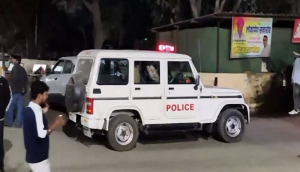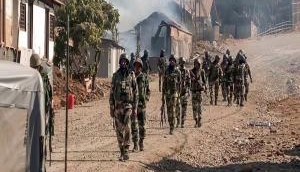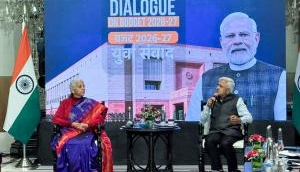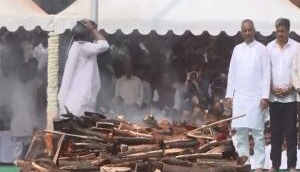
Hours leading up to the foundation stone laying ceremony for the long awaited Ram temple in Ayodhya, the All Iindia Muslim personal Law Board (AIMPLB) questioned the top court verdict in Ayodhya case. Taking to Twitter, the AIMPLB told its followers that there is “no need to be heartbroken”.
“#BabriMasjid was and will always be a Masjid. #HagiaSophia is a great example for us. Usurpation of the land by an unjust, oppressive, shameful and majority appeasing judgment can’t change it’s status. No need to be heartbroken. Situations don’t last forever,” the AIMPLB tweeted.
#BabriMasjid was and will always be a Masjid. #HagiaSophia is a great example for us. Usurpation of the land by an unjust, oppressive, shameful and majority appeasing judgment can't change it's status. No need to be heartbroken. Situations don't last forever.#ItsPolitics pic.twitter.com/nTOig7Mjx6
— All India Muslim Personal Law Board (@AIMPLB_Official) August 4, 2020
The tweet also had a press statement attached to it.
The AIMPLB was one of the petitioners who had filed a review petition against the Supreme Court verdict in the Ayodhya case last year. The court had also ordered the Indian government to allot a five acre plot of land in order to construct a mosque.
AIMPlA had stated that it will not accept the five acre land. Another Muslim body, the Jamiat Ulama-i-Hind had said that they object to the unanimous decision passed by the Supreme Court.
The AIMPLB was not a party to the case but had engaged in three litigants - Mohammad Umar Khalid, a resident of Ayodhya town; Misbahuddin, a resident of Ayodhya district and Mehfusur Rehman, a resident of Tanda town - to file the review petition.
However, all three review petitions were set aside by the Supreme Court.
The 136-year-old Ayodhya dispute escalated the communal tension on 16th December, 1992 when a mob scaled the Babri Masjid and razed it, stimulating series of violence that claimed at least 2,000 lives across India. Many Hindus believe the site was the birthplace of Lord Ram, and the 16th-century mosque was built after pulling down a temple.
The Allahabad high court in 2010 ordered the land be shared out equally to the Nirmohi Akhara, Ram Lalla and the Sunni Central Waqf Board. However, the Superme Court bench, led by former Chief Justice of India Ranjan Gogoi, with one mind quashed the high court ruling and gave title of the land to Ram Lalla.
Also Read: Ram Temple Bhumi Pujan: From Hanuman Garhi visit to laying foundation rock, PM Modi’s full itinerary
First published: 5 August 2020, 10:04 IST






![BJP's Kapil Mishra recreates Shankar Mahadevan’s ‘Breathless’ song to highlight Delhi pollution [WATCH] BJP's Kapil Mishra recreates Shankar Mahadevan’s ‘Breathless’ song to highlight Delhi pollution [WATCH]](https://images.catchnews.com/upload/2022/11/03/kapil-mishra_240884_300x172.png)

![Anupam Kher shares pictures of his toned body on 67th birthday [MUST SEE] Anupam Kher shares pictures of his toned body on 67th birthday [MUST SEE]](https://images.catchnews.com/upload/2022/03/07/Anupam_kher_231145_300x172.jpg)






